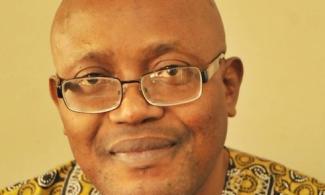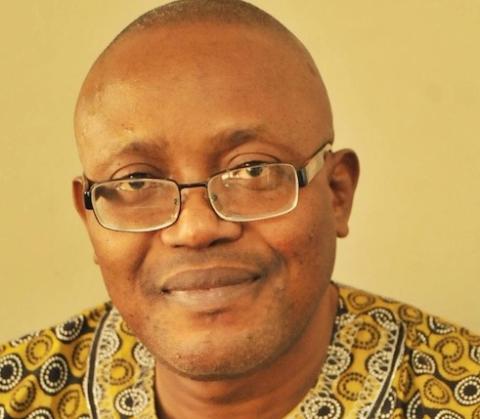
Although the US has recognised her victory, it is like someone being forced to choose between the Devil and Blue Sea.
The Madam Xiomara Castro Zelaya tsunami that on November 28, 2021 swept away the narcotic-centred political structures in Honduras, was a dozen years in the making. The ex-protest leader and former First Lady is not only set to become her country’s first female President, but the Liberty and Refoundation (Libre) Party she leads which emerged out of the protest movement, is set to be the first time in a century a party outside the two dominant parties, the conservative National Party of Honduras and the Liberal Party of Honduras, would win elections.

The stakes in the elections were quite high as a victory for the new party would not only sweep away the old structures, but the after effects are likely to be far reaching. First, the Honduras military which twelve years ago had abducted Castro’s husband, President Manuel Zelaya and thrown him out, is likely to undergo reforms. Secondly, the outgoing leadership and the old ruling party’s leaders are likely to face drug trafficking and corruption charges after leaving office. So, the hope of outgoing President Juan Orlando Hernández not to be stripped of his immunity and extradited to the United States, laid in his party retaining power. The Southern District of New York, SDNY had indicted Hernández of sponsoring a drug trafficking cartel and his younger brother, Juan Antonio Hernandez is serving a life sentence in a US federal jail for smuggling cocaine. Certainly, a new party that wants a new beginning for the country would not want to shield President Hernández.
Although Castro and her husband are quite wealthy, but they side with the working people. So, the small group of elites who have benefited immensely since Honduras, centuries ago, was a Spanish colony, would not want a power shift which is what Castro promises. She also wants to introduce Hugo Chavez-like subsidies in the country.
Although the US has recognised her victory, it is like someone being forced to choose between the Devil and Blue Sea; America would want more resources expended on Hondurans hoping this will stem their tide of mass migration towards it, but it will be uncomfortable with the President elect’s socialist policies. Also, if Castro is to continue the foreign policy of her husband’s administration, Honduras is likely to join the radical coalition of Venezuela, Cuba and Nicaragua. Already, Madam Castro has indicated a change of foreign policy in which Honduras would abandon diplomatic relations with Taiwan in favour of China.
Castro was thrown into the cesspool of politics in 2009 when the Supreme Court teamed up with the army and conservative elites to overthrow her husband, President Manual Zelaya who was in the third year of his four-year presidency. The elites, uncomfortable with the radical politics of one of their own, sought ways of ousting him.
They used the excuse of Zelaya proposing a non-binding plebiscite to change the single one-term to two-term Presidency. While it was known that even if the referendum were to become a constitutional amendment, it would not benefit President Zelaya as it was not retroactive, the conspirators still went for his jugular.
Although the Supreme Court ruled that it was illegal, Zelaya insisted on the plebiscite fixed Sunday June 28, 2009. The Army Chief of Staff, Romero Vasquez Velasquez refused the President’s directives that in line with tradition, the military assisted the electoral commission distribute electoral materials. The President then fired the Army Chief, but in a show of force, the Supreme Court within 24 hours, ruled General Velasquez’s sack illegal, reinstated him and then asked the Army to unseat President Zelaya. Masked soldiers on plebiscite morning , abducted President Zelaya put him in an aircraft and dumped him in Costa Rica. The masses rose in support of the ousted President and he boarded an aircraft back to Honduras but armed soldiers refused the aircraft to land.
It was these events that propelled Mrs Castro Zelaya to mobilise mass protests to force the usurpers allow her husband’s return. The protests movement then transformed into the Libre Party. In 2013, she contested and lost in the Presidential elections. She again contested the 2017 elections which she and her supporters believed they won. Mass protests followed, and about two dozen people were killed.
In the November elections, she squared up against the ruling party candidate, Nasry Asfura, former mayor of the capital, Tegucigalpa. She campaigned to end violent crimes, corruption, drug trafficking, mass migration, and, liberalize abortion, bring back expelled international corruption investigators, provide jobs and introduce universal basic income for the poorest Honduran families.
In one of her campaigns, she declared: "Honduras has been described as a narco-state because of the mafia that governs us, and we have also been described as the most corrupt country in Latin America… People of Honduras, now is the time to say enough of the misery, poverty and exclusion that our country suffers."
As the election results rolled in, she took an early lead which widened as more came in. But even as her lead became seemingly unassailable, the ruling party refused to concede defeat, declaring that it would win the elections by the time the full results were in. This led to tension with her supporters fearing that the polls would once again be rigged as they claimed it was four years ago. But this time, prominent figures opposed to Castro began to acknowledge her victory. The turning point was when her main rival, Asfura announced that he had visited Castro and her family and: "Now I want to say publicly that I congratulate her on her triumph and as President-elect. I wish that God will enlighten and guide her so that her administration will do the best for all of us Hondurans".
The victory of Castro is the triumph of principles, commitment and an unconquerable spirit which in the face of seeming hopelessness, refused to accept defeat. Despite the years of struggle, blood and toil, the electoral victory may be the easiest as an expectant populace looks up to an economically-challenged country. Yes, it is rich in minerals, coffee, tropical fruit, and sugar cane with a large textile industry, but its main trade is with the US which may seek to squeeze just as it has tried to strangulate Venezuela. Besides, the US has 1,200–1,500 troops at the Soto Cano Air Base.
Castro has promised a government of national unity, which is good, but this is where the likely fault lines in the coalition that snatched victory from the conservatives may begin to manifest. Besides, the old order is unlikely to give way without a fight and a lot may depend on the politics in the congress. Whatever the case, Honduras has a good chance at a new beginning.